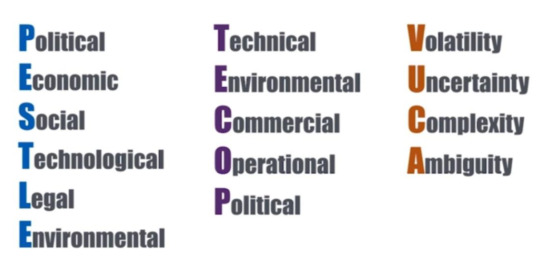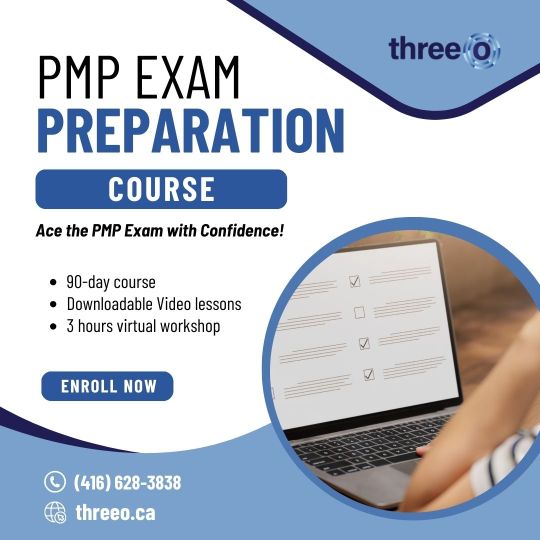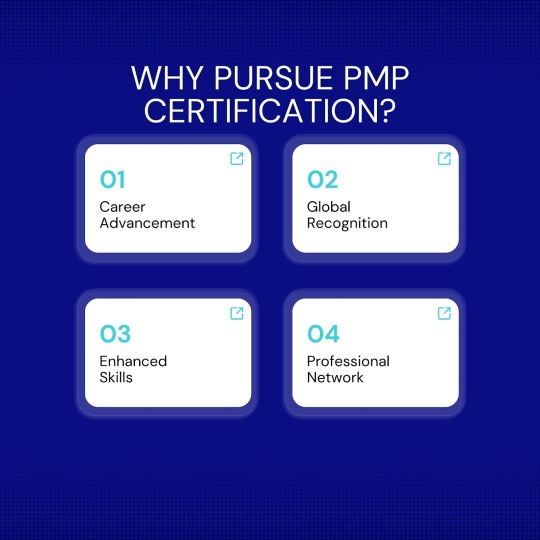#PMP Exam
Text
PMP Online Certification Training Course
Learn about the Project Management Professional PMP Online Certification , a globally recognized credential for project managers. Learn at your preferred time.
#project management#pmpcertification#pmp#pmp exam#pmp training#training#courses#online courses#certification#pmp online
2 notes
·
View notes
Text
PESTLE, TECOP and VUCA
In the fast-paced and unpredictable world of business, staying ahead requires a keen understanding of the forces that shape our environment. As organizations strive to make informed decisions and minimize risks, three essential frameworks come to the forefront—PESTLE, TECOP, and VUCA
Let’s delve into the intricacies of PESTLE’s political, economic, social, technological, legal, and environmental…

View On WordPress
#Online Training#PMI#PMP#PMP Certification#PMP Exam#Project Management#Project Management Professional#Project Managers#Project Risk Management
5 notes
·
View notes
Text
You need to check this out
Crack your next interview with Edureka!!!
2 notes
·
View notes
Text
As a project manager, you have the responsibility to choose a development
approach to execute your project work. A project development approach is a
method according to which you’re going to create and achieve your project
deliverable whether it’s a product, service, or result. It consists in applying a set of
procedures, techniques, practices, and rules throughout your project life cycle.
#pmp online#pmp exam#pmp training#pmp certification#pmp course#project manager#project management#magedazony#drmaged#camecenter
5 notes
·
View notes
Text
How do grow in software development and in companies?
How to grow your salary in your own field?
PMP certification helps you grow in your career and in your salary?
EduHubSpot best platform for learning PMP courses.
For More Please visit eduhubspot.com
2 notes
·
View notes
Text
What are the benefits of doing PMP? How is a PMP/PMI person different from other non-PMP/ PMI employees?
What are the benefits of doing PMP? How is a PMP/PMI person different from other non-PMP/ PMI employees?
What are the benefits of doing PMP? How is a PMP/PMI person different from other non-PMP/ PMI employees?
Obtaining a Project Management Professional (PMP) certification from the Project Management Institute (PMI) can offer several benefits:
Global Recognition: The PMP is a globally recognized certification, which can enhance your credibility and marketability in the field of project management.
Career Advancement: PMP certification is often required or preferred for senior project management roles. It can open up new career opportunities and potentially lead to higher salaries.
Professional Development: The certification process requires you to demonstrate your knowledge and skills in project management, which can enhance your abilities and effectiveness as a project manager.
Networking Opportunities: PMI membership and PMP certification can provide access to a vast network of project management professionals, which can be valuable for learning, career growth, and job opportunities.
Salary Increase: PMP certification is often associated with higher salaries. According to PMI's Earning Power Salary Survey, PMP-certified professionals earn, on average, 25% more than their non-certified counterparts.
Standardized Approach: PMP certification ensures that you have a standardized approach to project management based on PMI's best practices, which can lead to more successful project outcomes.
Continuous Learning: To maintain PMP certification, you are required to earn Professional Development Units (PDUs) through ongoing project management education and activities, which encourages continuous learning and improvement.
A PMP or PMI-certified individual may be perceived differently from non-certified individuals in several ways:
Knowledge and Skills: PMP certification indicates that an individual has a strong understanding of project management principles and practices, which can give them a competitive edge in the job market.
Professionalism: PMP certification demonstrates a commitment to the project management profession and adherence to a code of ethics, which can enhance an individual's professional reputation.
Career Opportunities: PMP certification can open up new career opportunities and advancement prospects that may not be available to non-certified individuals.
Salary: PMP-certified individuals often command higher salaries than their non-certified counterparts, reflecting the value that employers place on the certification.
Overall, obtaining a PMP certification can be a significant step in advancing your project management career and achieving professional success.
#online certification and training#pmp certification cost#pmp certification#pmp training#pmp certification price#pmp exam#pmp course
0 notes
Text
Building a Solid Foundation: PMP Certification and BA Training Essentials
In today's dynamic business environment, professionals are looking for credentials that not only validate their expertise but also open doors to new opportunities. Two such certifications that specialize in the field of project management and business analytics are the Project Management Professional (PMP) certification and the Business Analytics (BA) training. Let's take a look at the importance of these certifications and how they can advance your career.
Importance of PMP Certification
Benefits in career growth
The PMP certification offered by the Project Management Institute (PMI) is globally recognized as the gold standard in project management. Attaining this certification demonstrates your commitment to excellence and enhances your credibility as a project manager. Employers value PMP-certified professionals for their proven ability to lead teams, efficiently manage resources, and deliver successful projects on time and within budget.
recognition in the industry
Earning the PMP credential establishes you as an expert in project management methodologies and best practices. It validates your knowledge of the Project Management Body of Knowledge (PMBOK) and demonstrates your dedication to continuous learning and professional development. With the PMP certification, you gain access to a network of peers and mentors who can provide guidance and support throughout your career.
Understanding Business Analytics (BA)
Role and Responsibilities
Business analytics plays a vital role in bridging the gap between business objectives and IT solutions. BA professionals are responsible for identifying the needs of stakeholders, analyzing business processes, and defining requirements for software development projects. They act as liaisons between business stakeholders and technical teams, ensuring that project deliverables align with organizational goals and objectives.
Essential Skills for BA Professionals
Successful business analysts have a diverse skill set that includes analytical thinking, communication skills, and problem-solving abilities. They must excel in understanding and documenting requirements, facilitating workshops and meetings, and conducting feasibility studies and impact assessments. BA professionals also leverage tools and techniques such as SWOT analysis, stakeholder mapping, and case modeling for project success.
Synergy between PMP Certification and BA Training
The synergy between PMP certification and BA training lies in their complementary roles within the project management ecosystem. While the PMP certification focuses on the overall management of projects, the BA training emphasizes the analysis and documentation of business requirements. Professionals who have both qualifications have a holistic understanding of the project lifecycle and are well equipped to handle complex initiatives with confidence and competence.
Overlapping skills and knowledge areas
Many of the skill and knowledge areas covered in PMP certification, such as stakeholder management, risk assessment, and communications planning, are also integral to the practice of business analysis. By obtaining BA training along with PMP certification, professionals can deepen their expertise in these areas and broaden their career prospects.
Complementary Roles in Project Management
In a project environment, business analysts and project managers often collaborate closely to ensure project success. While project managers focus on the overall execution and delivery of projects, business analysts provide valuable information about the needs and requirements of stakeholders. This collaboration fosters synergy and fosters a culture of innovation and continuous improvement within project teams.
PMP Certification: Key Concepts and Exam Preparation
project management framework
The PMP exam covers the key concepts and principles outlined in the PMBOK guide, which serves as the foundation of project management practices around the world. Candidates must demonstrate proficiency in areas such as project initiation, planning, execution, monitoring and controlling and closing. Familiarity with project management processes, tools, and techniques is essential for success in the exam.
Five process groups and ten knowledge areas
The PMP exam organizes project management knowledge into five process groups: initiating, planning, executing, monitoring and controlling, and closing. Within these process groups, there are ten knowledge areas, including project integration management, scope management, schedule management, cost management, quality management, resource management, communication management, risk management, procurement management, and stakeholder management. Candidates must understand how these knowledge areas interact and apply them effectively in various project scenarios.
Tips for exam preparation
To prepare for the PMP exam, candidates should invest in comprehensive study materials, such as textbooks, online courses, and practice exams. Making and following a study schedule can help candidates stay on track and cover all the exam topics thoroughly. Additionally, participating in study groups or forums allows candidates to exchange ideas, clarify concepts, and gain insight from peers. Practice exams are invaluable for assessing preparation and identifying areas for further study.
Business Analysis Training: Courses and Skill Development
Key Concepts in BA Training
Business analysis training covers a wide range of topics including requirements elicitation, analysis and validation; Business Process Modeling; data analysis; and evaluation solutions and verification. Participants learn to identify business needs, analyze stakeholder requirements, and develop comprehensive requirements documents that serve as the basis for project planning and execution.
Requirements gathering techniques and tools
BA training introduces participants to various techniques and tools for gathering and documenting requirements. These may include interviews, surveys, workshops, focus groups, observations, prototypes, and use case scenarios. Participants learn how to select the most appropriate technologies based on project objectives, stakeholder priorities, and organizational constraints.
Practical experience in real-world scenarios
One of the major benefits of BA training is the opportunity to apply theoretical concepts in real-world scenarios through case studies, simulations and practical exercises. Participants work on projects that simulate real business environments, allowing them to gain practical experience and develop critical thinking and problem-solving skills. Feedback from instructors and peers helps participants refine their techniques and approach and prepares them for success in the field.
Career Opportunities for Professionals with PMP and BA Credentials
Project Manager Roles
PMP-certified professionals are well-positioned to perform a variety of roles within project management, including project manager, program manager, portfolio manager, and project consultant. These roles include overseeing the planning, execution and delivery of projects across various industries and sectors.
business analyst position
Professionals with BA training are in high demand in industries such as IT, healthcare, finance and manufacturing. They play a key role in software development projects, process improvement initiatives, and organizational change efforts. Business analysts may work within organizations or as consultants for third-party firms.
Project Management Office (PMO) Opportunities
Project management offices (PMOs) are the central hub for project governance, standards, and best practices within organizations. PMP-certified professionals often have opportunities to lead or contribute to PMO initiatives, such as developing project management methodologies, establishing project governance structures, and providing project management support and guidance to project teams.
Salary potential and job market demand
Competitive salaries for certified professionals
Professionals with PMP and BA certifications earn competitive salaries in the job market. According to industry surveys and salary reports, PMP-certified project managers earn higher salaries on average than their non-certified counterparts. Similarly, business analysts with recognized certifications such as Certified Business Analysis Professional (CBAP) or Certified Professional for Requirements Engineering (CPRE) enjoy attractive compensation packages and career advancement opportunities.
Increasing demand in various industries
The demand for project management and business analysis skills is continuously increasing in industries such as IT, healthcare, manufacturing, finance and government. Organizations recognize the value of investing in certified professionals who can make projects successful and deliver solid business results. As the pace of technological innovation accelerates and business landscapes evolve, the need for skilled project managers and business analysts will only increase.
How to choose the right training provider?
Accreditation and Reputation
While selecting a training provider for PMP certification or BA training, it is essential to consider factors like accreditation, reputation and industry recognition. Look for training providers that are accredited by reputable organizations such as PMI, IIBA (International Institute of Business Analysis), or ATP (Authorized Training Providers) that are endorsed by these organizations. Research online reviews, testimonials, and success stories to assess the quality of the training and the satisfaction of previous participants.
Curriculum flexibility and delivery methods
Choose a training provider that offers flexible course options and delivery methods to accommodate your schedule and learning preferences. Whether you prefer in-person classroom instruction, virtual online courses, self-paced e-learning modules, or blended learning formats, be sure the training provider can meet your needs. Evaluate the curriculum, learning objectives, and learning materials to ensure that they align with your career goals and learning objectives.
Alumni Success Stories and Reviews
Seek feedback from alumni and past participants to gain insight into their learning experiences and outcomes. Success stories and reviews from former students can provide valuable information about the effectiveness of the training program, the expertise of the trainers, and the relevance of the course material to real-world applications. Consider reaching out to alumni directly or joining online forums and communities where participants share their experiences and offer advice to aspiring professionals.
conclusion
Ultimately, obtaining PMP certification and BA training can significantly enhance your career prospects and professional growth opportunities. These certifications validate your expertise in project management and business analysis and demonstrate your commitment to excellence and continuous learning. By investing in comprehensive training and obtaining relevant certifications, you can prepare yourself for success in today's competitive job market and contribute to the success of projects and organizations.
0 notes
Text
PMP Exam Preparation Course
The PMP certification validates your project management expertise, boosting career prospects. Three O's PMP exam preparation course offers comprehensive training by experienced instructors, an online exam simulator, and access to the PMBOK (v7) guide to ensure your success and help you ace the PMP exam on your first attempt. Enroll now to unlock new professional opportunities.

0 notes
Text

Hand holding support available with 100% passing assurance.. Are you looking for any I.T Certification Support. We Provide Clearance Assistance for All Certification 100% Passing Guarantee 💯💯 #Certification #Training & #Dumps #JobSupport #intervewsupport #worksupport
Contact Us :
WhatsApp :- https://wa.link/notbtk
#ccna course#ccna training#cisco ccna#pmp exam#ccna certification#cyber security#pmp certification#pmp course#pmp training#cisco#cisa#cisa certification
1 note
·
View note
Text
PMI PMP

#business#education#student#technology#pmp certification#pmp course#pmp exam#pmp training#pmi#pmicertification
0 notes
Text
What is Business Value
Business Value is creating and delivering benefits that exceed the costs involved.
Definitions
Business value is the combination of tangible and intangible assets, capabilities, and relationships that a company possesses and leverages to create and capture value for its stakeholders.
Through the effective use of portfolio, program, and project management, organizations will possess the ability…

View On WordPress
#Online Training#PMI#PMP#PMP Certification#PMP Exam#Project Management#Project Management Professional
3 notes
·
View notes
Text
PMP Questions 51-60
Photo by Teona Swift on Pexels.com
PMP Question 51
At a critical milestone in a development project, it is determined that implementation is two months behind schedule. The project manager is concerned that the root cause is lack of conformance to requirements in the design of the new billing system. More extensive measurements are taken to see if this is, in fact, the problem. Those…

View On WordPress
0 notes
Text
PMP Prep
Master the art of project management with our specialized PMP Prep program. Gain invaluable skills and knowledge to excel in your professional journey.
0 notes
Text
Is it possible to get a PMP certificate after a bachelor degree and become a manager? Which institute is good for doing PMP?
Yes, it is possible to obtain a PMP (Project Management Professional) certificate after completing a bachelor's degree and pursue a career as a project manager. The PMP certification is a globally recognized credential offered by the Project Management Institute (PMI), which signifies that you have the knowledge and skills required to successfully manage projects.
To become eligible for the PMP certification exam, you need to have either a secondary degree (high school diploma, associate's degree, or global equivalent) with at least five years of project management experience, with 7,500 hours leading and directing projects, and 35 hours of project management education, OR a four-year degree (bachelor's degree or global equivalent) with at least three years of project management experience, with 4,500 hours leading and directing projects, and 35 hours of project management education.
As for which institute is good for doing PMP, the Project Management Institute (PMI) is the organization that offers the PMP certification and is highly regarded in the field of project management. PMI provides the necessary resources, study materials, and exams required to obtain the PMP certification. However, there are also many other institutions and training providers that offer PMP preparation courses and support. It's important to choose a reputable provider that offers quality training to help you prepare for the PMP exam and advance your career in project management.
#pmp certification#pmp certification cost#pmp certification price#pmp exam#pmp training#pmp course#online certification and training#online training course
1 note
·
View note
Text
Future-Proof Your Career: The Role of BA Training and PMP Prep
In today's dynamic business landscape, staying relevant and competitive requires continuous learning and skill development. Two major pathways for professionals aiming to enhance their career prospects are Business Analysis (BA) training and Project Management Professional (PMP) certification. Let's dive deeper into these areas and find out how they can advance your career.
Introduction to BA Training and PMP PreparationImportance of Business Analysis (BA) TrainingBusiness analysis plays a vital role in achieving organizational success by identifying business needs, facilitating change, and ensuring solutions that meet business objectives. BA training equips individuals with the tools and techniques needed to excel in this field, making them invaluable assets to their organizations.
Importance of Project Management Professional (PMP) CertificationProject management is essential to deliver projects on time, within budget, and with desired outcomes. PMP certification is globally recognized as a recognition of project management expertise, which opens doors to lucrative career opportunities and demonstrates a professional's commitment to excellence.
Understanding Business Analytics (BA)Definition and Role of Business AnalystsBusiness analysts act as liaisons between stakeholders to understand business requirements, analyze processes, and suggest solutions to improve efficiency and effectiveness.
Skills required for BAEffective communication, problem-solving, critical thinking and domain knowledge are essential skills for future business analysts to be successful in their roles.
Benefits of BA training
career opportunities
BA training enhances employability by equipping professionals with high-demand skills in various industries.
skill enhancementThrough structured learning programs, individuals can develop competencies in requirements gathering, data analysis, and stakeholder management essential for success in the BA domain.
Salary incrementCertified business analysts earn higher salaries and enjoy greater job stability than their non-certified counterparts.
Overview of PMP CertificationWhat is PMP?The Project Management Professional (PMP) certification, offered by the Project Management Institute (PMI), validates a professional's experience and qualifications in project management.
importance in project managementPMP certification demonstrates mastery of project management best practices, increases trust among stakeholders and ensures successful project delivery.
Eligibility Criteria for PMP Exameducational requirementsCandidates must have a post-secondary degree (high school diploma, associate degree, or global equivalent) with a minimum of 5 years of project management experience or a four-year degree with a minimum of three years of project management experience.
Project Management ExperienceApplicants must have 35 hours of project management education/training or CAPM® certification.
Importance of PMP PreparationExam Structure and FormatIt is important to understand the PMP exam structure and format for effective preparation. The exam consists of 200 multiple choice questions covering various aspects of project management.
Study resources and materialsThere are many study resources available, including books, online courses, and practice exams, to help candidates prepare effectively for the PMP exam.
BA Training vs PMP Preparation: Key Differencesfocus areasWhile BA training emphasizes understanding business needs and recommending solutions, PMP preparation focuses on project management methodologies and best practices.
Skill DevelopmentBA training enhances analytical and communication skills, while PMP preparation strengthens project management competencies such as risk management and stakeholder engagement.
Combining BA Training with PMP Preparationsynergy in skill setCombining BA training with PMP preparation provides professionals with a comprehensive skill set that enables them to excel in both business analysis and project management roles.
Career advancement opportunitiesProfessionals with a BA and expertise in project management are highly sought after for leadership roles, which offer greater opportunities for career advancement and professional development.
Choosing the Right Training ProgramAccreditation and RecognitionChoosing an accredited training program ensures quality education and increases the credibility of the certifications obtained.
Reviews and TestimonialsReading reviews and testimonials from past participants can provide information about the effectiveness and relevance of training programs.
Tips for Success in BA Training and PMP Preparationtime managementTo ensure adequate preparation for both BA training and PMP exam, effective time management is essential to balance work commitments with study schedule.
practice testTaking practice exams helps candidates become familiar with the PMP exam format and identify areas that require further study.
conclusion
Ultimately, BA training and PMP Prep are helpful in advancing career prospects and remaining competitive in today's job market. By acquiring the necessary skills and certifications, professionals can open up a world of opportunities and achieve organizational success through effective business analysis and project management.
Unique FAQIs it necessary to have prior experience in project management for BA training?
While prior experience can be beneficial, it is not always a prerequisite for BA training. Many programs cater to individuals from diverse backgrounds looking to transition into business analysis roles.
How much time does it take to prepare for PMP exam?
PMP exam preparation duration varies depending on an individual's background, study habits, and existing knowledge of project management concepts. On average, candidates spend several months studying for the exam.
Can I do BA training and PMP preparation together?
Yes, many professionals choose to pursue both BA training and PMP preparation together to enhance their skill set and career prospects. However, balancing both commitments effectively requires careful planning and time management.
What career opportunities are available after completing BA training and obtaining PMP certification?
Graduates of BA training programs and PMP certification holders can explore a variety of career opportunities in different industries, including business analyst, project manager, product owner, consultant, and others.
Are there any prerequisites for enrolling in BA training or PMP preparation courses?
While prerequisites may vary depending on the training provider, most BA training programs and PMP preparation courses have minimum requirements, such as educational qualifications and work experience in relevant fields.
0 notes
Text
Unleash Your Potential: A Comprehensive Guide to PMP Certification
Ready to elevate your project management career to new heights? Securing the Project Management Professional (PMP) certification is your gateway to unlocking fresh opportunities and showcasing your expertise in the field. Dive into this all-inclusive guide, designed to equip you with everything necessary to excel in the PMP exam and attain your certification.
Understanding the PMP Certification
Globally renowned as the pinnacle of project management prowess, the PMP certification signifies your adeptness in leading and overseeing projects. Acquiring this esteemed certification not only underscores your dedication to excellence but also bolsters your professional standing and credibility.
Why Pursue PMP Certification?
The advantages of obtaining your PMP certification are manifold:
Career Advancement: PMP certification paves the way for progression into higher echelons of project management, accompanied by enhanced earning potential.
Global Recognition: With its universal acclaim, PMP opens doors to diverse opportunities across industries and geographies.

Enhanced Skills: The rigorous PMP exam preparation regimen hones your project management skills to a refined edge, applicable across a spectrum of industries.
Professional Network: Joining the esteemed community of PMP-certified professionals provides access to a rich tapestry of collaboration and knowledge exchange.
PMP Exam Overview
Crafted to gauge your proficiency in project management across five core domains:
Initiating
Planning
Executing
Monitoring and Controlling
Closing
Each domain scrutinizes specific tasks and knowledge domains, ensuring a robust grasp of project management principles and best practices.
PMP Exam Preparation
Embarking on PMP exam readiness demands unwavering dedication. Here's a roadmap to success:
Enroll in a PMP Course: Opt for a reputable PMP course encompassing all exam facets, armed with comprehensive study materials and mock exams.
Study the PMBOK Guide: Delve deep into the Project Management Body of Knowledge (PMBOK) Guide, the cornerstone of PMP exam preparation, acquainting yourself with its concepts and terminologies.
Practice: Leverage practice exams and sample questions to gauge your proficiency and pinpoint areas necessitating improvement.
Join Study Groups: Engage with fellow PMP aspirants through study groups or online forums to pool resources, exchange tips, and glean insights.
Develop a Study Plan: Chart a structured study regimen encompassing all exam topics, allotting ample time for review and practice sessions.
Conclusion
Attaining your PMP certification marks a pivotal milestone in your project management journey. By adhering to the strategies delineated in this guide and investing effort into your exam readiness, you're poised to confront the PMP exam with confidence and emerge triumphant. Initiate your voyage toward career zenith today by embarking on the path to PMP certification.
0 notes